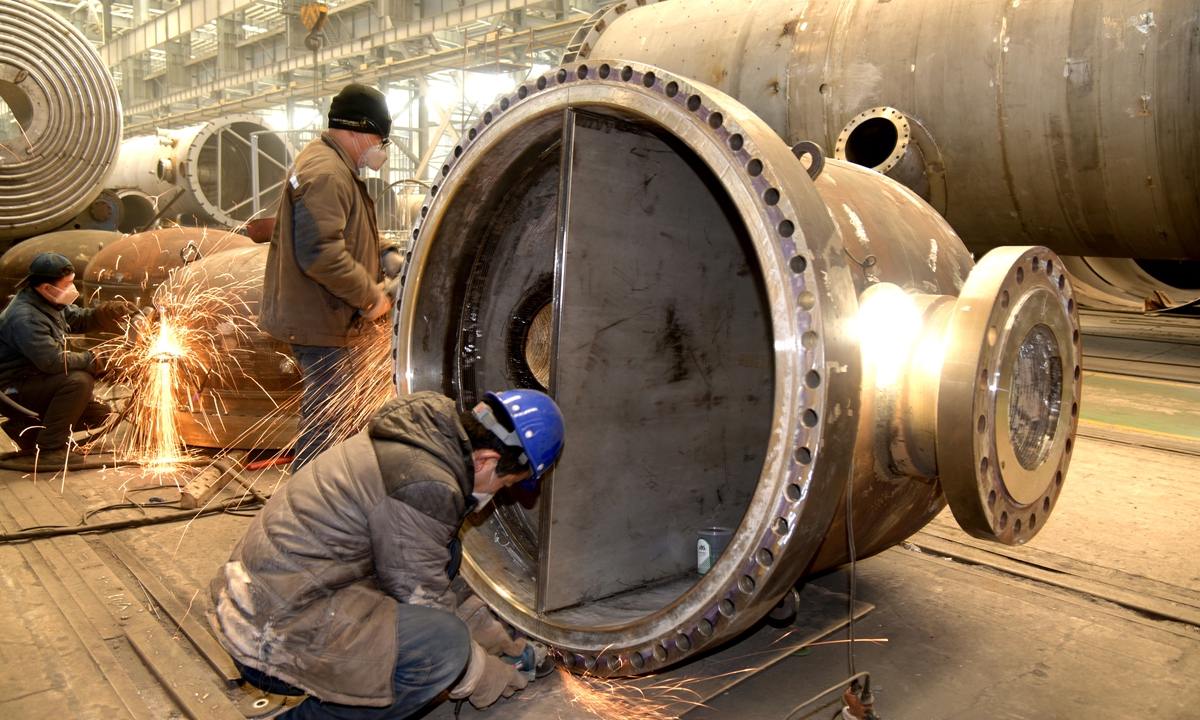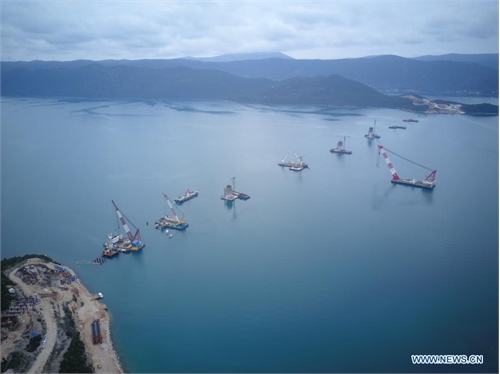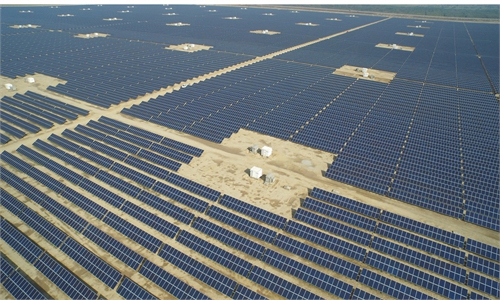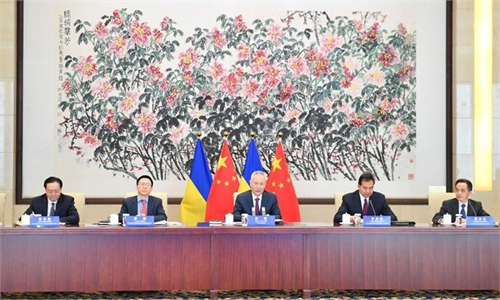
Workers rush to make export orders for countries along the Belt and Road Initiative (BRI) at the Shidao Heavy Industry workshop in Rongcheng, East China's Shandong Province on Thursday. The firm mainly produces heavy equipment, including nuclear power equipment and large pressure vessels, that's sold to more than 30 countries and regions along the BRI routes. Photo: cnsphoto
None of the key projects involved in China-proposed Belt and Road Initiative (BRI) have been suspended for reasons connected with COVID-19, a Chinese official said on Tuesday.
According to Peng Huagang, spokesperson of the State-owned Assets Supervision and Administration Commission of the State Council (SASAC), 81 centrally administered state-owned enterprises (SOEs) have undertaken more than 3,400 projects in economies along the routes of the BRI. So far, more than 600 have been completed.
Construction work for the Jakarta-Bandung high-speed railway and China-Laos railway is on schedule, he added, and 65 companies have moved into the China-Belarus industrial park, with total agreed investment of $1.22 billion.
The SASAC will continue to make every effort to combat the overseas epidemic, resume work and production, and build the BRI into a road of cooperation, health, recovery and growth, Peng said.
China Railway Construction Corp (CRCC) told the Global Times in a statement that it has been building infrastructure projects in countries including Algeria and Angola. In 2020, it signed two new project contracts with Ghana, which will start to be implemented in the coming years.
In November 2020, CRCC completed the construction of a tunnel in Sidi Aich, a town in northern Algeria, despite the impact of the pandemic. The tunnel is the biggest cross-section tunnel ever built by a Chinese company in Africa, and it has provided more than 500 jobs to local communities.
"Strict COVID-19 prevention measures, as well as seamless cooperation between Chinese and local staff, were key factors in the completion of the project," the company told the Global Times.
China's SOEs have been making significant progress and contributions amid COVID-19. Net profits of the centrally administered SOEs reached 1.4 trillion yuan ($215 billion) in 2020, up 2.1 percent year-on-year, the SASAC said on Tuesday.
Nearly 80 percent of these state-owned giants reported year-on-year profit growth, Peng told a press conference on Tuesday.



